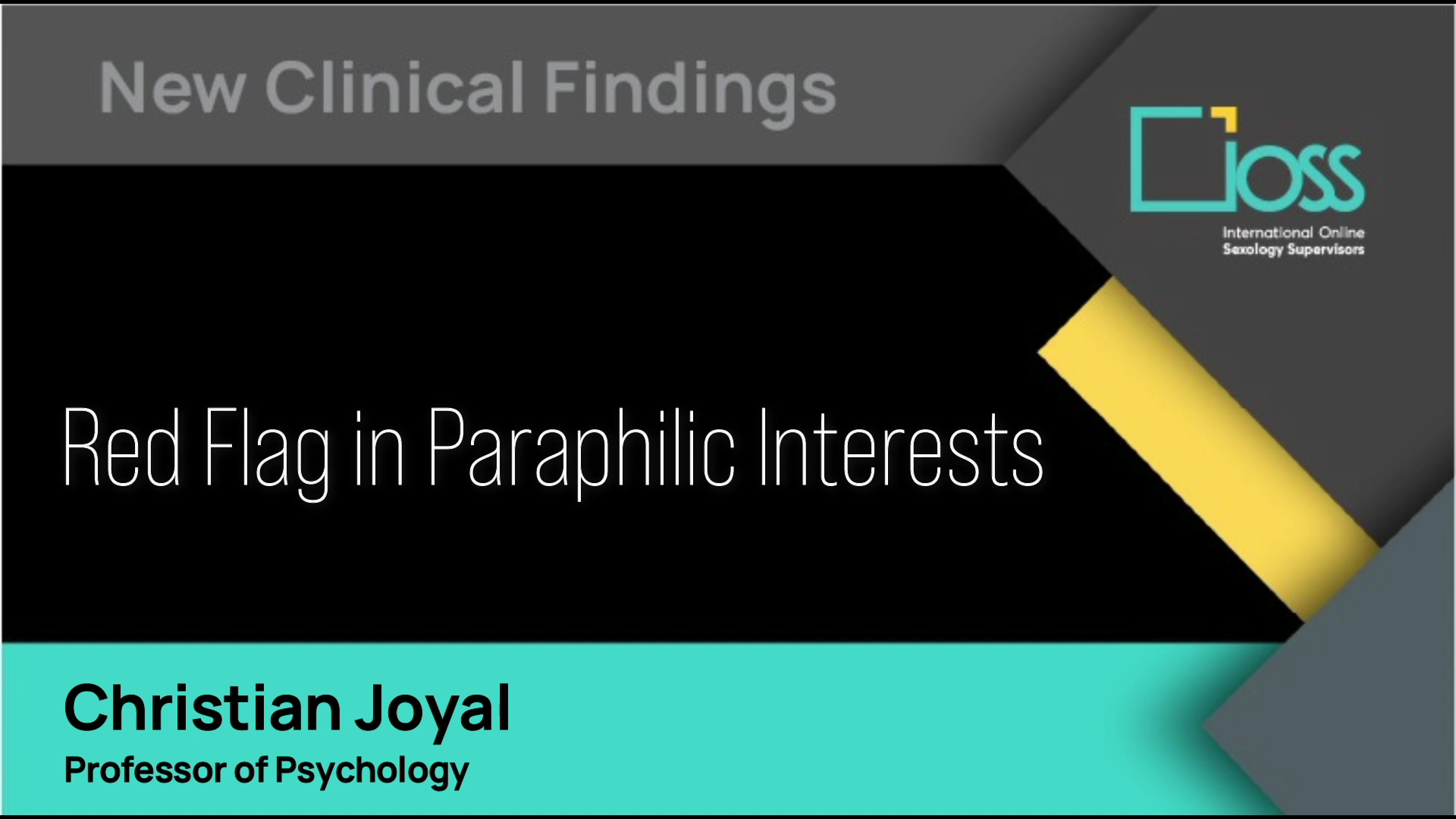Red Flag in Paraphilic Interests
43m
Christian Joyal
Professor of Psychology
 Trailer
Trailer Get AccessFull Video
Get AccessFull VideoContent: Several studies among sexual offenders have consistently shown that paraphilic interests are significant risk factors for criminal behavior. But is this also the case for the general population? In other words, do paraphilic interests predict criminal behavior among people from the general population? What are the implications of paraphilic fantasies for one’s sexual behavior? These questions have been of particular interest to Cristian Joyal, Professor of Psychology from Canada, who has conducted a series of studies to better understand the implications of sexual fantasies for sexual behavior. Inspired by his recent study* on the concordance and discordance between paraphilic interests and behaviors, we asked Prof. Joyal to share the most clinically significant research findings with us. Prof. Joyal goes well beyond the specific paper and walks us through the research questions that gradually built what is known today. He synthesizes years of research results and explains why it is important to understand the implications of sexual fantasies, how they have been studied, and what findings are the most important. At the end of this stimulating talk, Prof Joyal presents the specific factors that sexologists should look out for when a client has paraphilic fantasies because these have been associated with a higher risk for criminal behavior. Prof. Joyal’s insights and understanding of the current data on sexual fantasies are stimulating and highly significant for clinical practice.
* Joyal CC, Carpentier J. Concordance and Discordance between Paraphilic Interests and Behaviors: A Follow-Up Study. J Sex Res. 2021 Oct 12:1-6
Produced in 2022

Christian Joyal
Professor of Psychology
Speaker
Christian Joyal, Ph.D. is a neuropsychologist, professor at the psychology department, University of Quebec (Trois-Rivières, Canada) and researcher at the National Institute of Legal Psychiatry Philippe-Pinel (Montreal, Canada).
His domains of research interests include paraphilias, their definitions and their neurological or neuropsychological correlates, as well as sexual fantasies and their functions in general and among sexual offenders.


